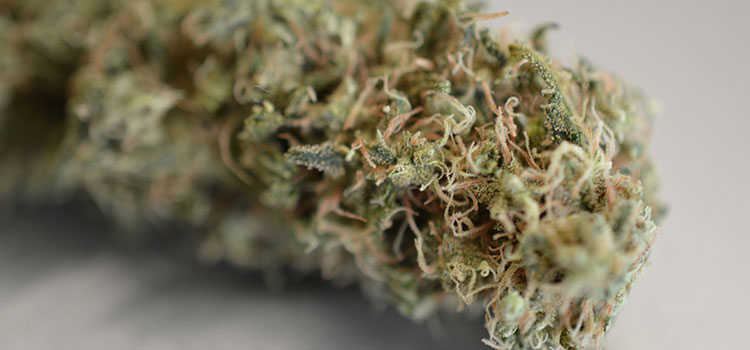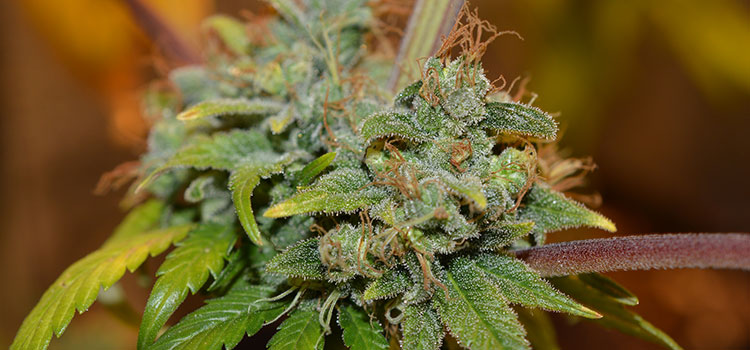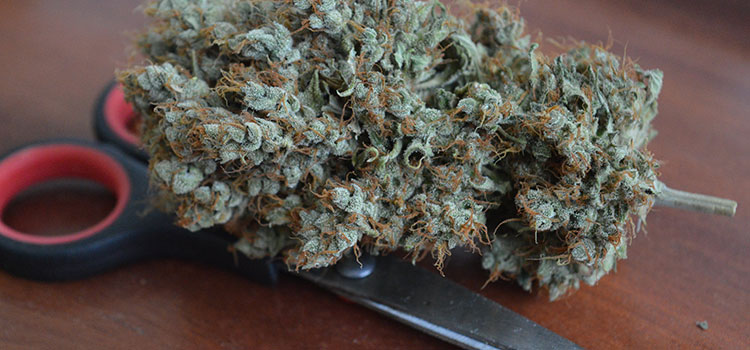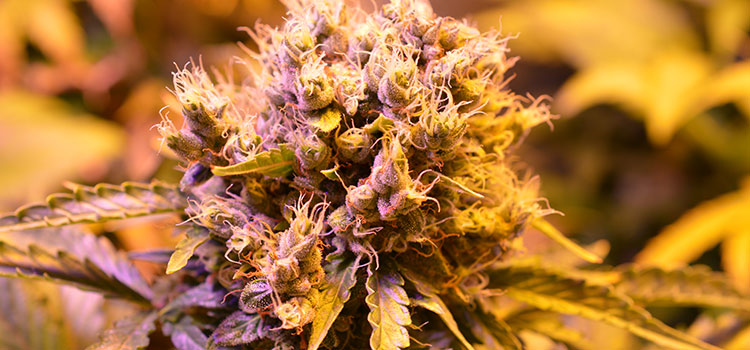Consumers want to know what they are putting in their bodies. As the legalization of medical and recreational cannabis becomes more commonplace, experts and tools to help make informed decisions are becoming increasingly important. From THC/CBD concentrations to pesticides, many consumers — especially those still using the informal market — often do not have the full picture of what compounds are in their buds, concentrates, or edibles.
However, there are companies, such as CBScientific and Cannalytics, who are making some of this information more accessible to the end-user, i.e. the consumer, offering test kits to measure the presence of THC and CBD in cannabis.
Another company, MyDx, is taking testing to another level with a handheld “electronic nose” device, providing users with a “Total Canna Profile” of what they are smoking.
These tests are not exactly created equal, and the services provided by these companies do vary. MyDx touts their products as a way to not only identify the active chemicals in cannabis samples but also to assist patients in determining which ratios best suit their needs.
MyDx CEO Daniel Yazbeck says he started wondering how and why cannabis works about eight years ago and soon realized there were no tools on the market that helped consumers figure that out. “I’m learning more and more that the cannabis industry can really use our product,” he said.
MyDx is a small analyzer that fits in the palm of your hand. The user places a small amount of ground up flower into a chamber and closes the port. The device analyzes the sample and syncs with an app, informing the user about the flower’s chemical profile with up to 80 percent accuracy. Those raw numbers are matched with MyDx’s database, which is crowdsourced by labs working with the company as well as MyDx users. Yazbeck noted that the database is HIPPAA compliant, so users need not be concerned with the private information logged into it.
Using the app, consumers have the option to rate whether a strain helps relieve symptoms, such as anxiety or epilepsy, or affects any other aspect of life, such as happiness, energy levels, and focus. The app also allows users to choose which symptoms they are experiencing and will help identify which strain might help relieve them.
Presently, the device only works with dry cannabis and is not compatible with concentrates and edibles. Yazbeck indicated that they are working on a sensor that would be able to read the profile of concentrates, but his focus for the next sensor is identifying pesticides and heavy metals.
“How big this market is compared to other industries, we’ll see,” Yazbeck said. “But we’re ready to deploy more products and we’re excited about … anytime we can help cannabis consumers the best we can, and offer a sensor that offers a broader chemical profile.”
Yazbeck said the new sensors would be available “later this year.”
CBScientific’s products are less high tech. The kits contain a liquid that is dropped onto a small cannabis sample. The combination creates a color reaction based on the chemicals present in the sample.
While MyDx translates raw data into strain information, CBScientific kits only test for whether or not the sample contains THC or CBD, using a color code system to determine approximately how much of the chemical is present. This is useful information for users trying to determine whether or not the strain they think they are buying is actually that strain. The problem is that the consumer must first know what ratios the strain should have.
For example, the Girl Scout Cookies strain contains between 17 percent and 28 percent THC, and between .09 percent and 0.2 percent CBD, according to information provided by Steep Hill Halent. If an individual uses the CBScientific kit to test what they believe to be Girls Scout Cookies, and those levels don’t match up, it is unlikely the strain is Girl Scout Cookies.
This information is also useful for patients who already know what best treats their ailments. If strains with 20 percent THC content have been therapeutic, a patient could use the kit to ensure they are taking the medicine that works best for them.
CBScientific Senior Researcher Alan Mathon says his company entered the cannabis testing business because “safety is of the utmost importance” in any industry with a medical component. Their kits test virtually any product that would contain THC or CBD — flower, concentrates and edibles — and often take less than a minute to show the results. Their ‘Test 4’ kits do not test for pesticides and heavy metals and, according to Mathon, a small test to detect over 530 pesticides is “not as simple as creating a small detection kit.”
He admits that one of the downfalls of the color system is that people see colors differently, so a deep red might look pink to some people — but it would still signify a positive text. Mathon says the company is developing tests with more range and the ability to detect other compounds.
“We are working with chromatography labs across the United States, Australia, and Japan to create a simplified pesticide detection kit for any user that would allow them to ship their product from anywhere in the world regardless of legality,” he said.
The good news for both companies is that they are able to provide goods and services in the cannabis space without facing many of the industry’s negative side effects, such as banking and credit card concerns.
MyDx is publicly traded as an over-the-counter stock. The company offers additional kits that test air and water quality using the same tech as their cannabis device. CBScientific has submitted its product for approval to the Food and Drug Administration. But both companies are trying to fill a role vacant due to the federal government’s inaction on legalization, decriminalization or rescheduling of cannabis – to help both medical and recreational cannabis users make more informed decisions about what they want, or don’t want, in their products.
Taylor West, Deputy Director for the National Cannabis Industry Association thinks self-testing cannabis is “a great option for people who want that added layer of information,” but that the industry is moving toward more mandated testing with informational labeling and packaging. She said she wouldn’t call heavy metals in cannabis a “widespread” issue, but she welcomes independent oversight.
“There are people who are motivated to find products that are produced in a more minimalist environment that doesn’t run the possibility of introducing some of these additives,” she said. “Certainly for people who are particularly concerned about their packaging and want to do additional testing, it’s good for them.”























